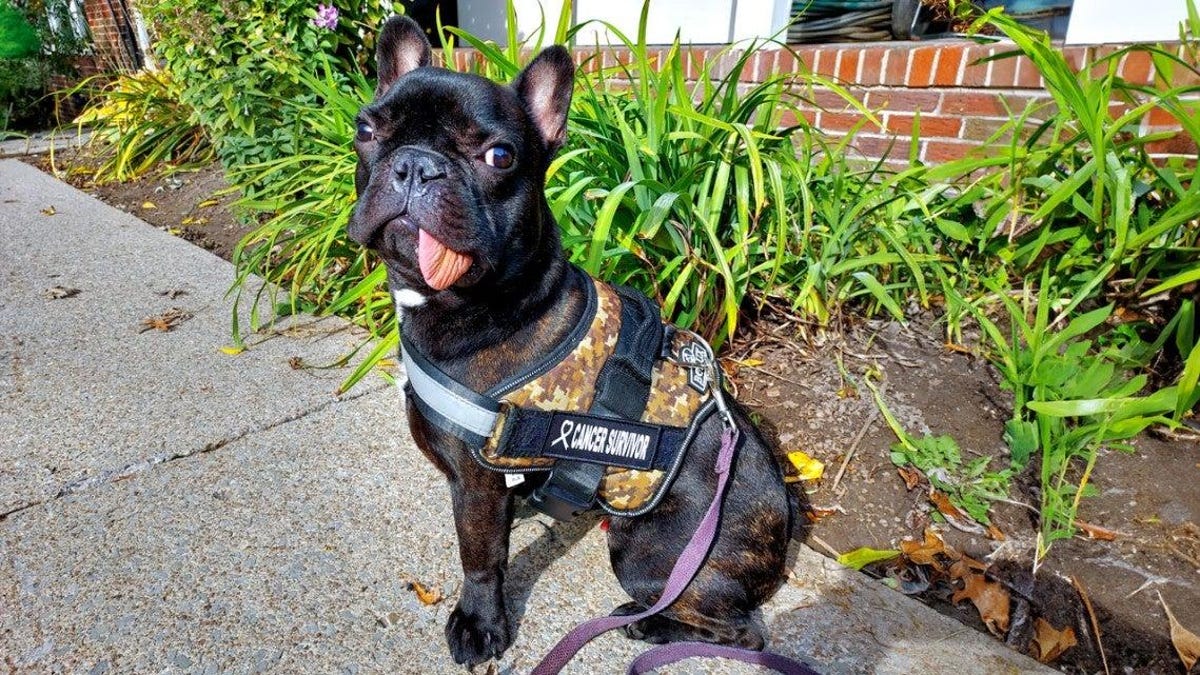A miraculous event occurred with 3-month-old French bulldog Tyson. Cornell University veterinarians shared in a report that the pup regrew most of his lower left jaw without any intervention after it had to be removed due to cancer. This is the first documented case of such regeneration in canines. Remarkably, Tyson remains cancer-free to this day.
The case is detailed in a report published in the journal Frontiers in Veterinary Science. According to the paper, Tyson was expected to undergo a surgical repair of a cleft palate in spring 2023, when his primary vet incidentally found a malignant tumor along his left jaw. A biopsy soon revealed that Tyson had developed an oral papillary squamous cell carcinoma, the second-most commonly reported type of oral cancer in dogs.
The standard treatment for these cancers is surgery, but his owners were initially hesitant. The tumor’s location meant that most of Tyson’s lower left jaw needed to be removed, and it was uncertain whether his cancer had progressed to a point where surgery would be ineffective. Subsequent tests showed that the cancer had not spread elsewhere, raising hopes for a positive prognosis with surgery. With the family’s consent, the vets performed the procedure.
Tyson experienced no significant complications afterward. To everyone’s surprise, his missing jaw began to regrow, bone and all, within the next eight weeks. While there have been reports of people regrowing their jaws after similar surgeries or injuries, and some anecdotal stories of young dogs regrowing a small portion of their jaw, this is the first documented case of jaw regeneration in a dog following oral cancer surgery.
“We had no idea his jaw would grow back,” said Melissa Forsythe, one of Tyson’s owners, in a statement released by Cornell University.
The most likely factors in Tyson’s remarkable recovery, the team says, are his age and the fact that the surgery left much of the jaw’s periosteum—a thin membrane layer covering bone that contains the blood vessels nourishing it—intact. However, the exact mechanisms behind the regeneration remain a mystery. “More has to be done to understand the likelihood of this occurring in other dogs and if a specific age range makes a difference,” said study author Alexandra Wright, a dentistry and oral surgery resident at Cornell who led Tyson’s care.
Tyson had to undergo another surgery to repair his cleft palate, which was successful. His new lower left jaw is not as functional as the old one since it’s missing teeth, but it is as long as the right side and healthy. So far, the vets have found no evidence of the cancer returning.
Tyson’s owners and the vets hope that his story can provide insight for treating other dogs in similar situations. “His case now demonstrates the possibility of complete bone regeneration when working with a patient this young,” Wright said.
In a Medical First, a French Bulldog Puppy Spontaneously Regrew His Lower Jaw











